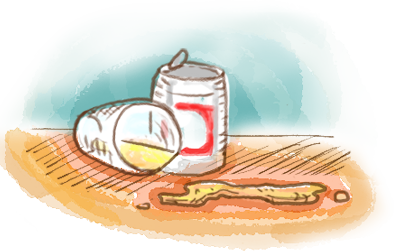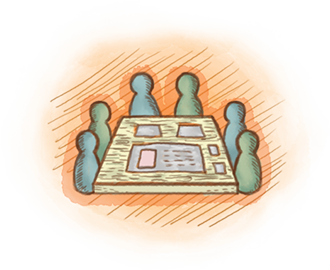I. When your family members have a drinking problem
When discovering your family members have a drinking problem, you may be struggling with a number of painful emotions. You need to learn more about alcohol and to find out whether your family members are alcoholics.
Alcoholics features
Feature 1: Craving
Strong desire to drink
Always thinking about alcohol
Feature 2: Withdrawal symptoms
Insomnia
Shaking
Sweating
Hallucination
Feeling anxious
Nausea
Feature 3: Losing control
Being unable to stop once started drinking
Having "blackouts"
Failure to control drinking
Feature 4: Tolerance
Need to drink greater amounts of alcohol progressively in order to reach the same effect you get after drinking alcohol
Feature 5: Trouble caused by drinking
You have failed to do what was normally expected of you because of your drinking
Having problems at school/workplace or getting in trouble with the law
While you are thinking about how to help your family member(s) who has a drinking problem, have you ever cared about your needs?
Do not feel guilty or responsible for your family member’s behavior
There are multiple factors that cause the alcohol problems. It is not your fault which causes the problems. Feeling guilty or remorse cannot help to solve the problems. You need to accept yourself and your family members, and try to understand the reasons behind their drinking behavior. It can help to encourage the alcohol abuser to talk to you as well as being willing to make changes.
To preserve and build up energy
Recovery is an ongoing process which requires time and patient. You should not attribute his/her unwillingness to change to yourself. You should take care of yourself and get the support you need in order to prepare for the unexpected opportunity that helps the alcohol abuser to change.

II. Tips for family members
Dealing with a loved one’s alcohol problem can be an emotional rollercoaster. You can try the following methods in order to help the alcohol abuser.
Emotional control
Take a deep breath and do some stretching exercises to help you to relax. It is important to keep sanity to deal with the problem.
Step by step
Understand the family's views on abstinence. Help your family member to understand about their drinking behavior and their views on abstinence. Encourage them to deal with their drinking behavior step by step.
Perseverance is key
Recovery is a bumpy road. You need to believe your own efforts. In addition this can finally help your family members to deal with their drinking problems.
Choose the right time
Do not argue with the person when they are drunk. Discuss the drinking problems with them when they are sober.
Get support
Call in help from a professional, like a social worker, doctor or therapist to ask for advice on how to get the person into treatment.
Do not suppress feelings
Living with an addict is exhausting. Take care of yourself as you also need time to relax. Share your feelings with the people you trust. Let family members know that you care about them.
Do not be too hasty
Try not to force your family member(s) when they refuse to quit alcohol, you should Try to communicate with them patiently so as to play a supportive role to their drinking problem.
Do not give up
Even if your family member(s) abuses alcohol again, it does not mean that they cannot ultimately succeed.
Do not force the family member to make a choice between ‘Alcohol’ and ‘You’
Try not to only focus on the drinking problems and to lose heart when dealing with the addict. It may only increase their feelings of guilt and push them further into drinking.

III. Ask for help
Please contact our social workers at 2884-9876
























